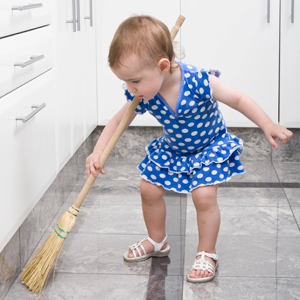 by Rachel Lincoln Sarnoff
by Rachel Lincoln Sarnoff
Executive Director/CEO
Healthy Child Healthy World
Cleaning used to be a simple thing. You learned what to use from your parents and bought the same products when you moved into your own house. But new reports just emerging may make you rethink choosing some of those brands.
Earlier this month, a report conducted by the Silent Spring Institute in Newton, MA and published in the online Environmental Health Perspectives journal revealed chemicals linked to linked to asthma and hormone disruption in 200 common household products.
Personal care products such as soaps and lotions, household cleaners, sunscreens, air fresheners, vinyl shower curtains and pillow protectors—even kitty litter—were found to contain chemicals such as phthalates (linked to reproductive abnormalities and asthma) and parabens (linked to hormone disruption and associated with breast cancer), among others.
Many chemicals were not listed on labels of the products, which were manufactured by conventional and “alternative” brands. However, some brands and industry groups disagree with the study’s findings. A U.S. News & World Report story quoted spokespeople for the American Cleaning Institute and the Consumer Specialty Products Association, both of whom claimed the report was misleading and pointed to the Consumer Product Ingredient Communication Initiative, in which companies voluntarily provide product ingredients on a label, website or through a toll-free phone number.
A story in USA Today quoted a representative from Seventh Generation, which manufactures six of the alternative products tested, who said the company uses none of the chemicals the study found in three of its products and raised questions of cross-contamination.
Want to be sure you know what’s in the bottle? Fill it yourself. Baking soda and vinegar are star players in the DIY healthy cleaning products category.
You can’t get an easier shopping list than that.
Dear Rachel:
The Silent Spring Institute study you reference looked at suspected asthmagens and endocrine disruptors in both conventional and alternative cleaning products, including vinegar and baking soda. Importantly, the study found trace levels (part-per-million) of these chemicals of concern in alternative cleaning products including vinegar and baking soda. Therefore, based on this study, your are recommendation to use vinegar and baking soda is a recommendation to use contaminated materials for cleaning.
Indeed, the issue at hand is not trace levels of chemicals of concern in alternative products (including baking soda and vinegar). The issue is that these chemicals of concern are being intentionally added as ingredients in other products. To keep these suspected asthmagens and endocrine disruptors out of vinegar, baking soda, alternative cleaning products, our homes, and our bodies we need to get these chemicals out of products that use them as ingredients.
The call to action should be to stop using products that use these chemicals of concern as ingredients so these chemicals cannot find their way into alternative products, our homes, or our bodies.